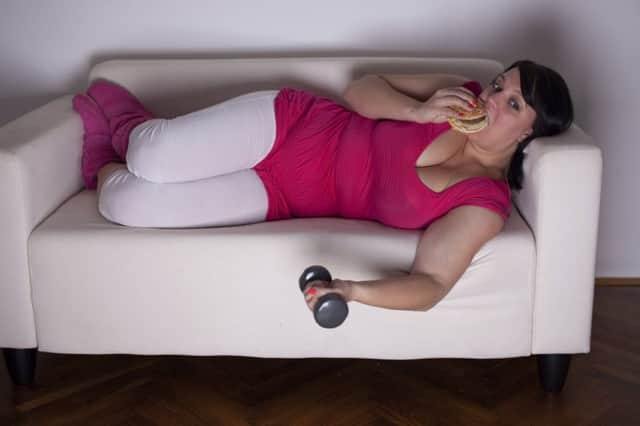Shanna Christie: Over a third of Scots do not get enough exercise


One of the biggest risk factors for developing these conditions is a lack of physical activity. This is why the Government has set key outcomes for participation in sport and physical activity in Scotland over the next ten years as part of the Active Scotland Outcomes Framework.
A crucial measure of success is to monitor the proportion of the population who achieve the recommended level of physical activity. So what is the recommended level? The guidelines state that adults should be physically active for a minimum of 150 minutes per week (at a moderate level) or 75 minutes (vigorous level).
Advertisement
Hide AdAdvertisement
Hide AdThat’s the equivalent of a 15 minute fast-paced walk to and from work 5 days a week or three 50 minute swims per week. This may not seem like a lot, but those not meeting this minimum have a 20 per cent to 30 per cent increased risk of death in comparison with those that do.
So exactly how well do people in Scotland do in meeting these guidelines? In order to answer this we can look to the Scottish Health Survey, a large-scale Scottish Government survey run by ScotCen Social Research which asks people about their physical activity. It found that 37 per cent of people in Scotland didn’t meet the guidelines of 150 minutes (moderate) or 75 minutes (vigorous) of physical activity. With around 4.5 million adults in Scotland, that means that means over 1.5m people are falling short of the Government’s minimum guidelines.
The survey also finds that women were less likely than men to achieve the guidelines – 41 per cent of women compared with 32 per cent of men failed to meet the minimum. Age was, perhaps unsurprisingly, another key factor with around three quarters (74 per cent) of adults aged 75 and over not meeting the guidelines compared with just 21% of adults aged 25-34. Meeting the guidelines was also related to the area that people lived in - those living in the most deprived areas were more likely to fall short in comparison with those living in the least deprived areas.
While the physical activity guidelines can include a wide range of activities such as walking and heavy housework and gardening it is also interesting to look at how many people in Scotland don’t take part in sport and exercise which is what people more commonly think of as physical activity. A significant proportion of people (45 per cent) don’t take part in any sport or exercise at all. Similar to the proportion falling short of the guidelines, more women than men didn’t take part in any sport or exercise (52 per cent for women compared with 38% for men) and older people were less likely to do so than younger people.
Barriers to taking part in sport
When asked, people that had not participated in any sport in the previous month said that the main barriers were poor health and lack of time. As we would expect poor health was much more common among older people with as many as 63% of those aged 75 and over and 40 per cent of those aged 65-74 feeling like they can’t participate in sport due to their poor health compared with only 11 per cent of those aged 16-34. Conversely not having the time was the most common issue among younger age groups with around half of people aged between 16 and 44 feeling that this is preventing them taking part in sport compared with only 5 per cent of those aged 75 facing this issue.
It’s also revealing to look at some of the motivations that people have for doing sport. The most common reasons were enjoyment and keeping fit. There was also some interesting differences between men and women with women being much more likely to say that weight loss and accompanying children were motivators whereas men were more likely to say enjoyment, performance improvement and training/participating in competitions.
Shanna Christie, senior researcher at ScotCen Social Research.